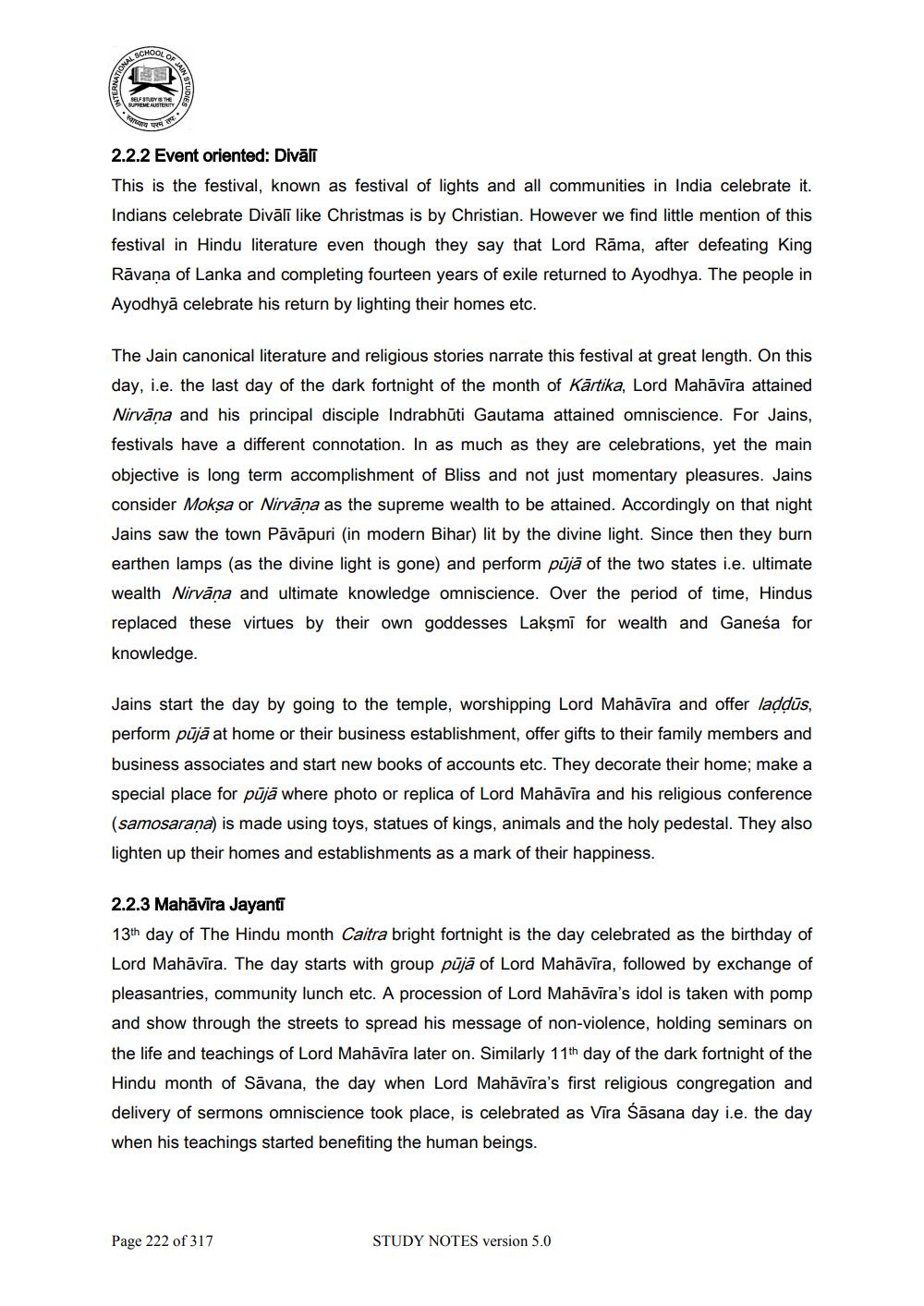________________
SCHOOL
TIONAL
OF
AN STUDIES
SELF STUDY IS THE SUPREME AUSTERITY
स्वाध्याय परमं तपः
2.2.2 Event oriented: Divālī
This is the festival, known as festival of lights and all communities in India celebrate it. Indians celebrate Divālī like Christmas is by Christian. However we find little mention of this festival in Hindu literature even though they say that Lord Rama, after defeating King Rāvana of Lanka and completing fourteen years of exile returned to Ayodhya. The people in Ayodhyā celebrate his return by lighting their homes etc.
The Jain canonical literature and religious stories narrate this festival at great length. On this day, i.e. the last day of the dark fortnight of the month of Kārtika, Lord Mahāvīra attained Nirvana and his principal disciple Indrabhuti Gautama attained omniscience. For Jains, festivals have a different connotation. In as much as they are celebrations, yet the main objective is long term accomplishment of Bliss and not just momentary pleasures. Jains consider Moksa or Nirvana as the supreme wealth to be attained. Accordingly on that night Jains saw the town Pāvāpuri (in modern Bihar) lit by the divine light. Since then they burn earthen lamps (as the divine light is gone) and perform pūjā of the two states i.e. ultimate wealth Nirvāṇa and ultimate knowledge omniscience. Over the period of time, Hindus replaced these virtues by their own goddesses Lakṣmi for wealth and Ganesa for knowledge.
Jains start the day by going to the temple, worshipping Lord Mahāvīra and offer laḍdūs, perform pūjā at home or their business establishment, offer gifts to their family members and business associates and start new books of accounts etc. They decorate their home; make a special place for pūjā where photo or replica of Lord Mahāvīra and his religious conference (samosarana) is made using toys, statues of kings, animals and the holy pedestal. They also lighten up their homes and establishments as a mark of their happiness.
2.2.3 Mahāvīra Jayanti
13th day of The Hindu month Caitra bright fortnight is the day celebrated as the birthday of Lord Mahāvīra. The day starts with group pūjā of Lord Mahāvīra, followed by exchange of pleasantries, community lunch etc. A procession of Lord Mahāvīra's idol is taken with pomp and show through the streets to spread his message of non-violence, holding seminars on the life and teachings of Lord Mahāvīra later on. Similarly 11th day of the dark fortnight of the Hindu month of Savana, the day when Lord Mahāvīra's first religious congregation and delivery of sermons omniscience took place, is celebrated as Vīra Šāsana day i.e. the day when his teachings started benefiting the human beings.
Page 222 of 317
STUDY NOTES version 5.0




